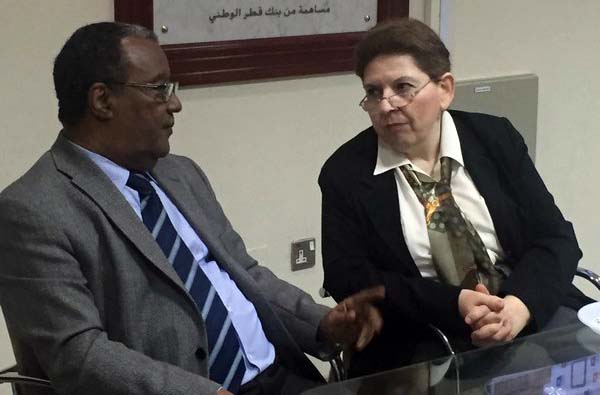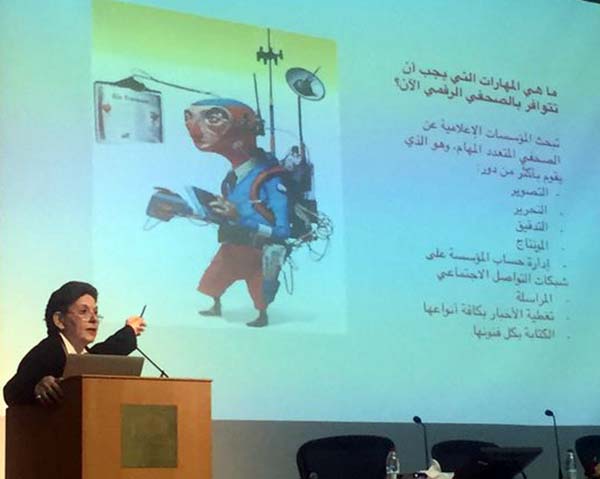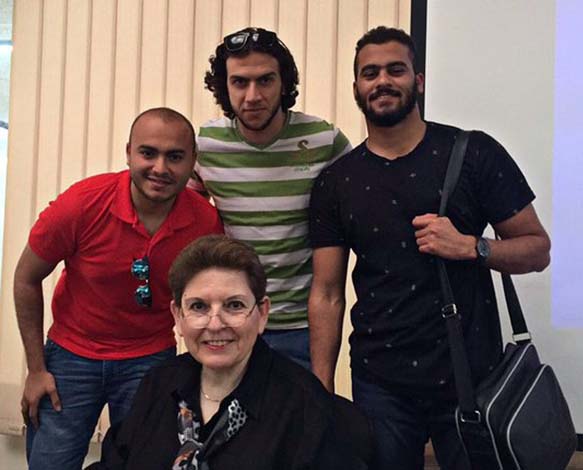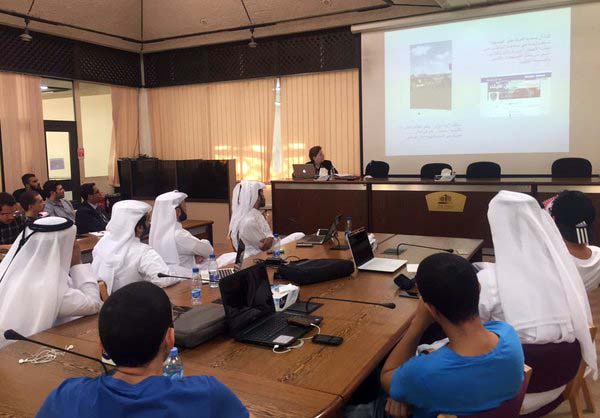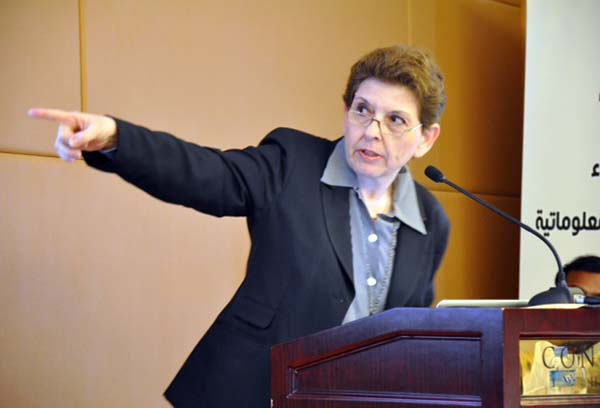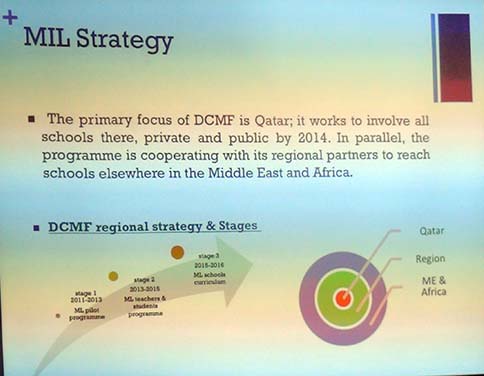How credible are social media, are they reliable sources of information, and should journalists use them for their coverage?
Media Unlimited director Magda Abu-Fadil raised these three and other pertinent questions in an address to mass communications students and faculty members at Qatar University in October.
Abu-Fadil touched on how legacy media are increasingly using tips and reports disseminated through social media in conflict zones and in light of widespread terrorism but that verification remained a major challenge.
She used case studies from coverage of demonstrations in Lebanon and how the media interpreted the civil society and rioters’ presence in the streets during a lecture entitled “Rise of Social Media on the Media Landscape: Impact on Media Ethics.”
Abu-Fadil also tracked the evolution of social media and their incorporation into integrated multimedia news operations serving consumers across various platforms using mostly mobile digital devices.
She stressed the need for critical thinking to deconstruct social media messages and posts and understand what positive and negative impact they have on recipients.
On a second day, Abu-Fadil conducted a workshop for QU students on the use of social media and online journalism, notably the ubiquity of mobile journalists (mojos).
The workshop included a general knowledge test for the students as well as tips on how to verify online data, and case studies of unethical media behavior online.


